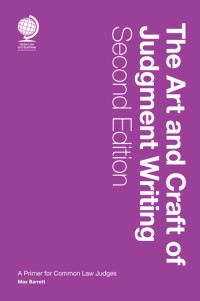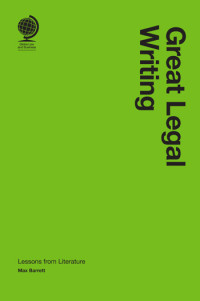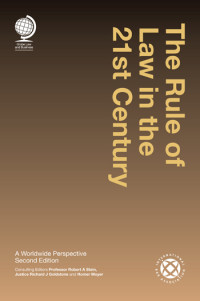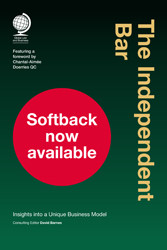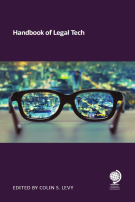
Author(s): Max Barrett
Publication date: Jun 2025
Format: Hardback
Pages: 680
Price: £165.00
ISBN: 9781837230709
How our eBook platform works
How permanent access, multi-user eBooks work
Add to basket (UK and Europe)Add to basket (USA, rest of world)
Add to basket (UK and Europe)Add to basket (USA, rest of world)
Review from previous edition: "This is a marvellous book, full of wisdom and literary references. It is written by a leading Irish judge and brings with it an international flavour, featuring judgments from common law jurisdictions across the world."
,
Review from previous edition: "This is an enjoyable and instructive book for all who are interested in how law is made."
Review from previous edition: "I very much enjoyed the opportunity this book gave me for dipping in and out of a wide range of judgments across a wide span of geography and time, absorbing their literary qualities and individual styles…I found myself turning down the corners of pages so I could better find again some little quote from a judgment that I rather liked, and which had current potency or particular relevance to my field of work or areas of interest…I thought this was an excellent book and recommend it to other legal professionals, not just judges."
The real value of this vastly expanded new edition of The Art & Craft of Judgment Writing lies in the additional practical material it contains, bringing the original volume up to date with, in particular, new sections on artificial intelligence (AI), the use of visual aids, and the use of gender-inclusive language.
,
In this second edition of The Art and Craft of Judgment Writing, Max Barrett, an experienced and practising judge working in Ireland, will not only enhance your judgment writing skills but elevate them to a new level of clarity, precision and style. With the first edition already used by judges around the globe, this new edition goes beyond the fundamentals to dive into cutting-edge areas of interest that today’s judges need to navigate.
Subjects new to the second edition:
- The use (and misuse) of artificial intelligence in judgment writing. Stay ahead of the curve as AI begins to influence legal writing.
- Visual aids in judgments: learn how diagrams, graphs and infographics can make judgments more comprehensible and memorable.
- Effective use of precedent: read about the challenging balance between being thorough and overwhelming your readers.
- The power of storytelling: discover how narrative techniques can make your judgments clearer and more powerful.
- Structured writing and editing: develop a process that ensures your judgments are well-organised and polished.
- Proper use of footnotes and gender-inclusive language: enhance the professionalism and inclusivity of your work.
- Collaborative judgment-writing: understand better the dynamics of working on a judgment-writing team.
With more real-world examples from case law, a 'key learnings and question' section with each chapter to help judges turn theory into practice and an entirely new exploration of what great fiction writers have taught about writing, The Art and Craft of Judgment Writing is not just a book: it's a roadmap to becoming a better writer and a more effective judge.
[All author royalties earned from this book will be donated by the author to Cancer Research UK].




